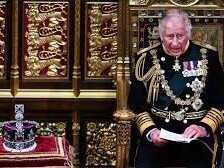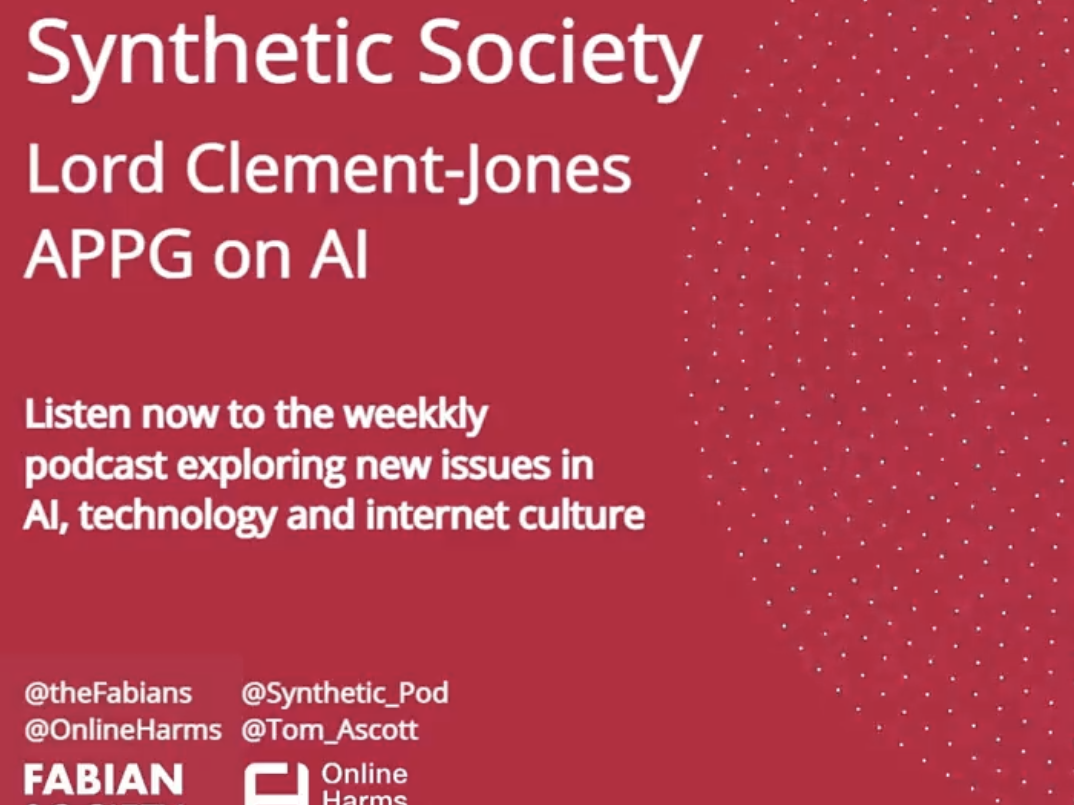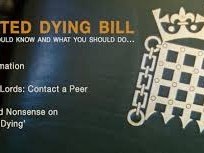The Digital Markets Competition and Consumer Bill had its Second Reading in the House of Lords on the 5th December 2023 and its 3rd Reading on the 26th March 2024 This is an edited version of what I said on each occasion
Second Reading
I thank the Minister for what I thought was a comprehensive introduction that really set the scene for the Bill. As my noble friend said, we very much welcome the Bill, broadly. It is an overdue offspring of the Furman review and, along with so many noble Lords around the House, he gave very cogent reasons, given the dominance that big tech has and the inadequate powers that our competition regulators have had to tackle them. It is absolutely clear around the House that there is great appetite for improving the Bill. I have knocked around this House for a few years, and I have never heard such a measure of agreement at Second Reading.
We seem to have repeated ourselves, but repetition is good. I am sure that in the Minister’s notebook he just has a list saying “agree, agree, agree” as we have gone through the Bill. I very much hope that he will follow the example that both he and the noble Lord, Lord Parkinson, demonstrated on the then Online Safety Bill and will engage across and around the Chamber with all those intervening today, so that we really can improve the Bill.
It is not just size that matters: we must consider behaviour, dominance, market failure and market power. We need to hold on to that. We need new, flexible pro-competition powers and the ability to act ex ante and on an interim basis—those are crucial powers for the CMA. As we have heard from all round the House, the digital landscape, whether it is app stores, cloud services or more, is dominated by the power of certain big tech companies, particularly in AI, with massive expenditure on compute power, advanced semiconductors, large datasets and the scarce technology skills forming a major barrier to entry where the development of generative AI is concerned. We can already see the future coming towards us.
In that context, I very much welcome Ofcom’s decision to refer the hyperscalers in cloud services for an investigation by the CMA. The CMA and the DMU have the capability to deliver the Bill’s aims.the It must have the ability to implement the new legislative powers. Unlike some other commentators, we believe, as my noble friend said, that the CMA played a positively useful role in the Activision Blizzard-Microsoft merger. It is crucial that the CMA is independent of government. All around the House, there was comment about the new powers of the Secretary of State in terms of guidance. The accountability to Parliament will also be crucial, and that was again a theme that came forward. We heard about the Joint Committee proposals made by both the committee of the noble Baroness, Lady Stowell, and the Joint Committee on the Online Safety Bill.
We need to ensure that that scrutiny is there and, as the Communications and Digital Committee also said, that the DMU is well resourced and communicates its priorities, work programmes and decisions regularly to external stakeholders and Parliament.
The common theme across this debate—to mention individual noble Lords, I would have to mention almost every speaker—has been that the Bill must not be watered down. In many ways, that means going back to the original form of the Bill before it hit Report in the Commons. We certainly very much support that approach, whether it is to do with the merits approach to penalties, the explicit introduction of proportionality or the question of deleting the indispensability test in the countervailing benefits provisions. We believe that, quite apart from coming back on the amendments from Report, the Bill could be further strengthened in a number of respects.
In the light of the recent Open Markets Institute report, we should be asking whether we are going far enough in limiting the power of big tech. In particular, as regards the countervailing benefits exemption, as my noble friend said, using the argument of countervailing benefits—even if we went back to the definition from Report—must not be used by big tech as a major loophole to avoid regulatory action. It is clear that many noble Lords believe, especially in the light of those amendments, that the current countervailing benefits exemption provides SMS firms with too much room to evade conduct requirements.
The key thing that unites us is the fact that, even though we must act in consumers’ interests, this is not about short-term consumer welfare but longer-term consumers’ interests; a number of noble Lords from across the House have made that really important distinction.
We believe that there should be pre-notification if a platform intends to rely on this exemption. The scope of the exemption should also be significantly curtailed to prevent its abuse, in particular by providing an exhaustive list of the types of countervailing benefits that SMS firms are able to claim. We would go further in limiting the way in which the exemption operates.
On strategic market status, one of the main strengths of the Bill is its flexible approach. However, the current five-year period does not account for dynamic digital markets that will not have evidence of the position in the market in five years’ time. We believe that the Bill should be amended so that substantial and entrenched market power is mainly based on past data rather than a forward-looking assessment, and that the latter is restricted to a two-year assessment period. The consultation aspect of this was also raised; there should be much greater rights on the consultation of businesses that are not of strategic market status under the Bill.
A number of noble Lords recognised the need for speed. It is not just a question of making sure that the CMA has the necessary powers; it must be able to move quickly. We believe that the CMA should be given the legal power to secure injunctions under the High Court timetable, enabling it to stop anti-competitive activities in days. This would be in addition to the CMA’s current powers.
We have heard from across the House about the final offer mechanism affecting the news media. We believe that a straightforward levy on big tech platforms, redistributed to smaller journalism enterprises, would be a far more equitable approach. However we need to consider in the context of the Bill the adoption by the CMA of the equivalent to Ofcom’s duty in the Communications Act 2003
“to further the interests of citizens”,
so that it must consider the importance of an informed democracy and a plural media when considering its remedies.
The Bill needs to make it clear that platforms need to pay properly and fairly for content, on benchmarked terms and with reference to value for end-users. Indeed, we believe that they must seek permission for the content that they use. As we heard from a number of noble Lords, that is becoming particularly important as regards the large language models currently being developed.
We also believe it is crucial that smaller publishers are not frozen out or left with small change while the highly profitable large publishers scoop the pool. I hope that we will deal with the Daily Telegraph ownership question and the mergers regime in the Enterprise Act as we go forward into Committee, to make sure that the accumulation of social media platforms is assessed beyond the purely economic perspective. The Enterprise Act powers should be updated to allow the Secretary of State to issue a public interest notice seeking Ofcom’s advice on digital media mergers, as well as newspapers, and at the lower thresholds proposed by this Bill.
There were a number of questions related to leveraging. We want to make sure that we have the right approach to that. The Bill does not seem to be drafted properly in allowing the CMA to prevent SMS firms using their dominance in designated activities to increase their power in non-designated activities. We want to kick the tyres on that.
Of course, there are a great many consumer protection issues here, which a number of noble Lords raised. They include fake reviews and the need for collective action. It is important that we allow collective action not just on competition rights but further, through consumer claims, data abuse claims and so on. We should cap the costs for claimants in the Competition Appeal Tribunal.These issues also include misleading packaging.
Nearly every speaker mentioned subscriptions. I do not think that I need to point out to the Minister the sheer unanimity on this issue. We need to get this right because there is clearly support across the House for making sure that we get the provisions right while protecting the income of charities.
There is a whole host of other issues that we will no doubt discuss in Committee: mid-contract price rises, drip pricing, ticket touting, online scams and reforming ADR. We want to see this Bill and the new competition and consumer powers make a real difference. However, we believe that we can do this only with some key changes being made to the Bill, which are clearly common ground between us all, as we have debated the Bill today. We look forward to the Committee proceedings next year—I can say that now—which will, I hope, be very productive, if both Ministers will it so.
Third Reading
I reiterate the welcome that we on these Benches gave to the Bill at Second Reading. We believe it is vital to tackle the dominance of big tech and to enhance the powers of our competition regulators to tackle it, in particular through the new flexible pro-competition powers and the ability to act ex ante and on an interim basis.
We were of the view, and still are, that the Bill needs strengthening in a number of respects. We have been particularly concerned about the countervailing benefits exemption under Clause 29. This must not be used by big tech as a major loophole to avoid regulatory action. A number of other aspects were inserted into the Bill on Report in the Commons about appeals standards and proportionality. During the passage of the Bill, we added a fourth amendment to ensure that the Secretary of State’s power to approve CMA guidance will not unduly delay the regime coming into effect.
As the noble Baroness, Lady Stowell, said, we are already seeing big tech take an aggressive approach to the EU Digital Markets Act. We therefore believe the Bill needs to be more robust in this respect. In this light, it is essential to retain the four key amendments passed on Report and that they are not reversed through ping-pong when the Bill returns to the Commons.
I thank both Ministers and the Bill team. They have shown great flexibility in a number of other areas, such as online trading standards powers, fake reviews, drip pricing, litigation, funding, cooling-off periods, subscriptions and, above all, press ownership, as we have seen today. They have been assiduous in their correspondence throughout the passage of the Bill, and I thank them very much for that, but in the crucial area of digital markets we have seen no signs of movement. This is regrettable and gives the impression that the Government are unwilling to move because of pressure from big tech. If the Government want to dispel that impression, they should agree with these amendments, which passed with such strong cross-party support on Report.
In closing, I thank a number of outside organisations that have been so helpful during the passage of the Bill—in particular, the Coalition for App Fairness, the Public Interest News Foundation, Which?, Preiskel & Co, Foxglove, the Open Markets Institute and the News Media Association. I also thank Sarah Pughe and Mohamed-Ali Souidi in our own Whips’ Office.
Given the coalition of interest that has been steadily building across the House during the debates on the Online Safety Bill and now this Bill, I thank all noble Lords on other Benches who have made common cause and, consequently, had such a positive impact on the passage of this Bill. As with the Online Safety Act, this has been a real collaborative effort in a very complex area.
6th August 2021
Digital ID: What’s the current state-of-play in the UK?
6th April 2021
Regulating the Internet
14th December 2014






